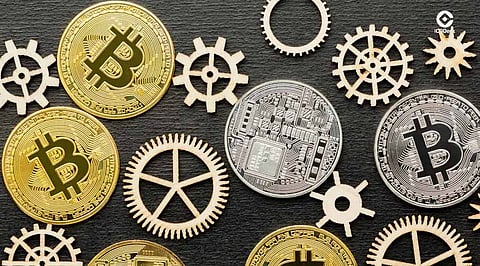

Bitcoin has been the source of fascination, controversy, and speculation from its launch in 2009. Praised by its advocates as the wave of the future for decentralised finance and dismissed by critics as a speculative bubble, cryptocurrency has become a force to be reckoned with as a robust asset class with far-reaching implications. However, even as more people, companies, and even governments adopt it, myths and misconceptions persist to obscure its appreciation.
From allegations of making illegal transactions easier to being labelled as a fickle and insecure investment, Bitcoin has been through its share of criticism. In nations such as the United States, the regulatory strategy has moved between hopeful scepticism and tight control, with India sitting at a crossroads when it comes to its crypto strategy. In this article, we dissect five of the most common myths about Bitcoin and sift fact from fiction.
Perhaps the longest-standing myth surrounding Bitcoin is that it is used mainly for criminal purposes. Although the cryptocurrency was first used on the dark web, research has indicated that criminal activity constitutes a small percentage of Bitcoin's total transactions. In contrast to cash, which is virtually untraceable, Bitcoin is on a public ledger, the blockchain, where all transactions are recorded and traceable. Regulatory agencies worldwide, including the FBI and Interpol, have leveraged blockchain analytics to trace purposes including cross-border remittances, institutional investments, and everyday transactions.
Rather, critics argue that because it lacks any backing in the form of a physical commodity such as gold, or statutory backing by a government, Bitcoin possesses no intrinsic value. However, that stance totally disregards the tenets of economic theory. Bitcoin draws value from scarcity: there cannot be more than 21 million coins in existence- who would deny this? Bitcoin earns that value from decentralisation- an aspect that makes it impossible for governments or central banks to sled DDR-into-the-mud with inflation. Just like regular fiat currency, Bitcoin's value fluctuates according to supply and demand, confidence in the network, and its role as a mechanism of exchange and unit of account for value. The longer institutional investors are involved, the greater Bitcoin's credibility increases as a form of 'digital gold.'
Bitcoin's volatility in prices is used as a proof of its instability. True, Bitcoin has shown stunning fluctuations, but one should put this volatility into perspective given that it is an emerging asset class. Conventional markets, such as stocks and commodities, are also volatile, particularly when they are in their infancy. Over time, price volatility in Bitcoin has diminished as institutional demand and market liquidity have increased. To most investors, Bitcoin is a high-risk, high-return asset that is used as an inflation hedge and a hedge against conventional financial instability.
Reports of exchange hacks and scams have created a myth that Bitcoin itself is not secure. But the Bitcoin system is based on a decentralized blockchain protected by advanced cryptographic concepts and a proof-of-work consensus model, making it nearly impossible to hack or alter. Security is usually breached at the exchange level or as a result of negligence by individual users, like substandard private key management. Using secure wallets and best security measures, users can minimize their risk exposure considerably.
With the thousands of new cryptocurrencies that have appeared in recent years, some believe that Bitcoin will ultimately become obsolete. Although newer digital assets provide more advanced functionalities, Bitcoin has a first-mover advantage, the biggest network effect, and the greatest security level. While most other cryptocurrencies focus on fast innovation, Bitcoin values stability and decentralisation, which makes it a favourite among long-term investors. Although other cryptocurrencies can be used for niche applications, Bitcoin's dominance is not challenged in the wider digital asset space.
Bitcoin regulatory policies are extremely diverse by country. In the US, the government once was highly sceptical but now has a strategic approach. US President Donald Trump has recently signed an executive order creating a Strategic Bitcoin Reserve, making the US a global leader in digital asset adoption. The action reflects the increased awareness of the economic and geopolitical importance of Bitcoin. Conversely, India has pursued a more conservative strategy. The Reserve Bank of India (RBI) initially banned banking transactions with cryptocurrency in 2018, only to have the ban reversed by the Supreme Court in 2020. Currently in 2025, India is reviewing its crypto regulations to suit changing global developments. A high-ranking government source recently confirmed that regulatory reforms were being considered, which could open the door to more formalised adoption of digital assets within the nation.
Despite criticism and regulatory uncertainty, Bitcoin has solidified itself as revolutionary force in the financial sphere. No longer an experimental currency, it is now a serious asset class with mass acceptance electronic currency, it is now a serious asset class with mass acceptance and institutional support. Misconceptions still linger, but education and regulatory transparency will be essential factors in determining Bitcoin's destiny. As the global markets evolve, the role of Bitcoin in the financial system will grow, disrupting conventional concepts of money, investment, and decentralised finance. As a hedge against inflation, a medium of exchange, or a store of value, the influence of Bitcoin on the world economy is unquestionable.
The question is no longer if Bitcoin will endure, but how it will define the future of finance.